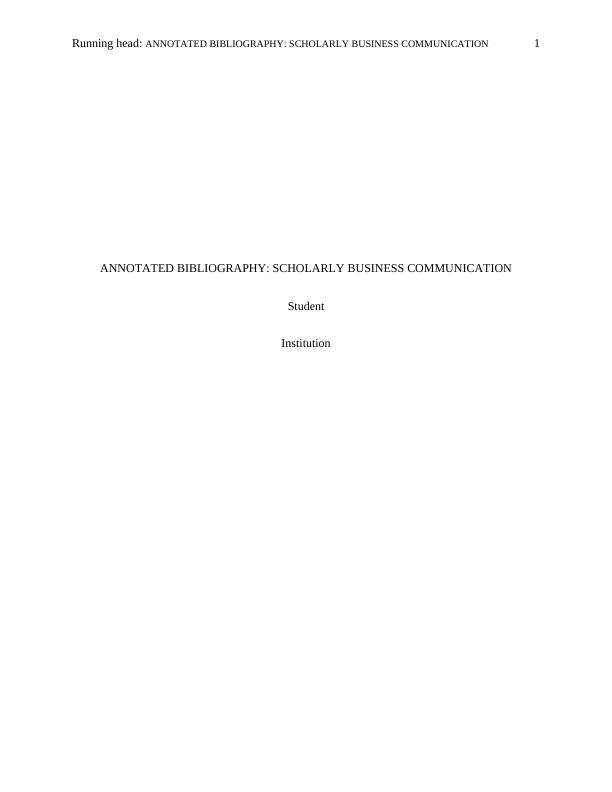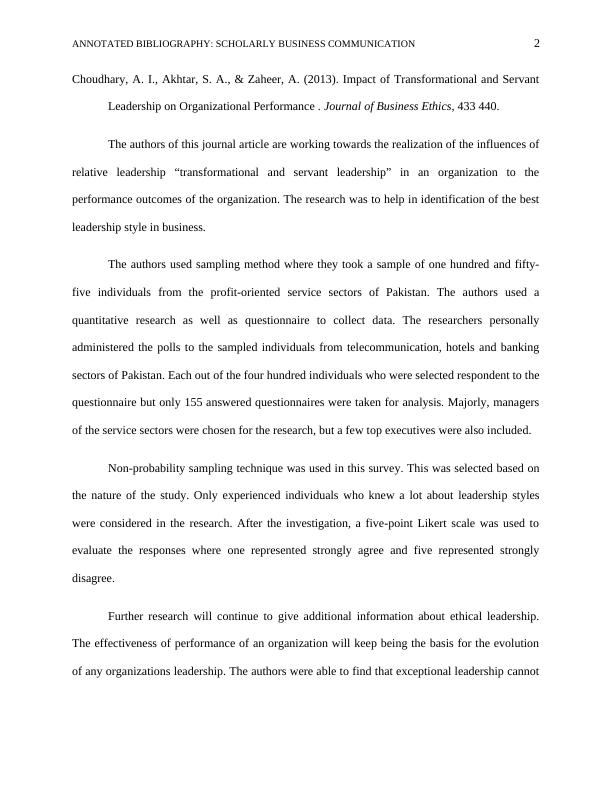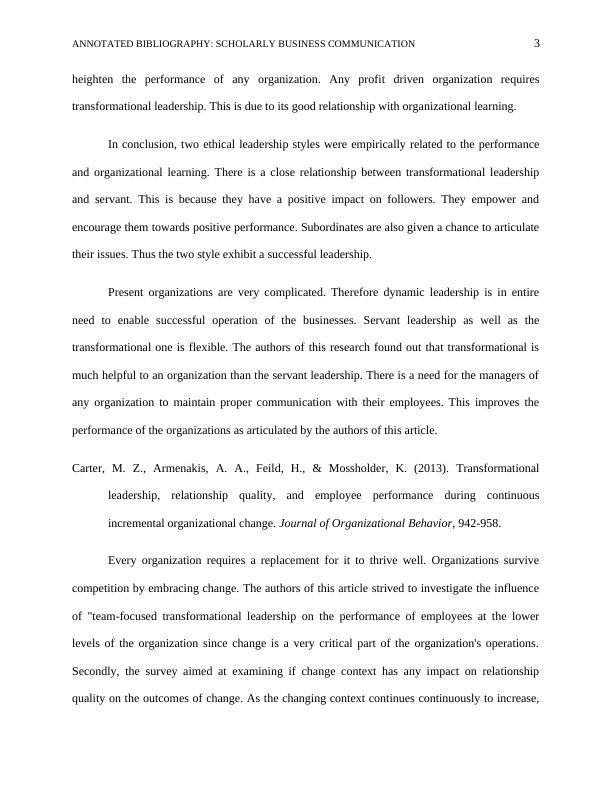Annotated Bibliography: Scholarly Business Communication
Develop an annotated bibliography using selected articles from week four, following APA format.
9 Pages2156 Words407 Views
Added on 2023-06-10
About This Document
This annotated bibliography explores the impact of different leadership styles on organizational performance, specifically transformational and servant leadership. It also examines the relationship between transformational leadership and organizational learning and innovation, as well as the role of leadership behavior in management innovation. The bibliography also delves into the mediating effects of employee work engagement on the correlation between transformational leadership and organizational knowledge creation practices.
Annotated Bibliography: Scholarly Business Communication
Develop an annotated bibliography using selected articles from week four, following APA format.
Added on 2023-06-10
ShareRelated Documents
End of preview
Want to access all the pages? Upload your documents or become a member.
Organizational Culture and Effectiveness
|8
|1662
|81
Annotation Bibliography Project Management Research Project 2022
|5
|689
|125
Article Annotated Bibliography 2022
|6
|1611
|18
Do Ethical, Authentic, and Servant Leadership Explain Variance Beyond Transformational Leadership? A Meta-Analysis
|29
|17762
|468
Ethical Leadership - Annotated Bibliography
|4
|636
|28
Annotated Bibliography of sustainable tourism Article 2022
|5
|1623
|44



